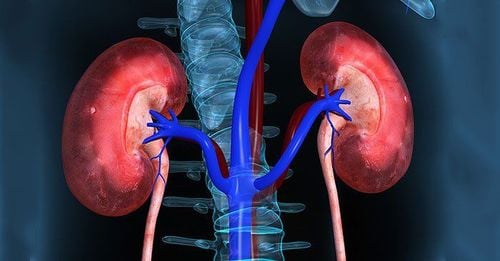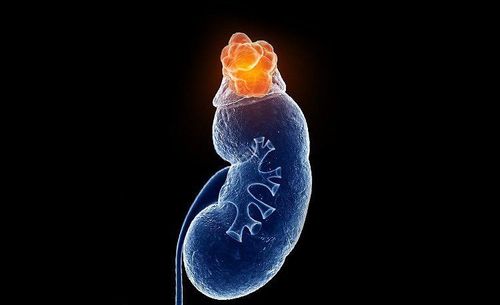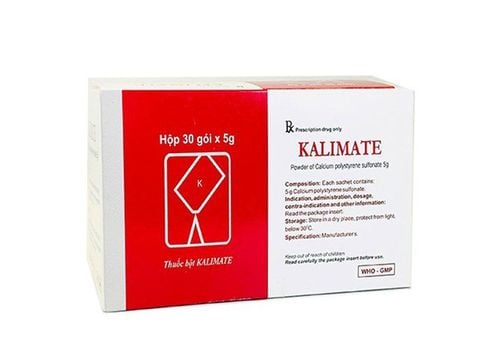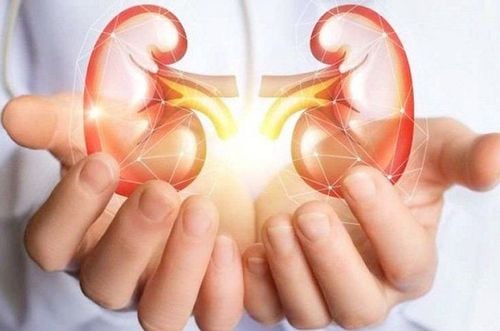This is an automatically translated article.
Potassium plays an important role in nerve impulse conduction, acid-base balance, enzyme activity and cell membrane function. Hyperkalemia can cause muscle weakness and flaccid paralysis due to ion imbalance for neuromuscular excitability.1. What is increased blood potassium?
Hyperkalemia is a medical term that describes a higher than normal level of potassium in the blood. Potassium is a major cation in cellular electrolytes, facilitating contraction of skeletal and smooth muscle, including cardiac muscle.
Normal blood potassium level is 3.5-5 mmol/l. Hyperkalemia when potassium > 5 mmol/l.
If the serum potassium level is higher than 6 mmol/l, it should be treated immediately due to the risk of cardiac arrhythmias and possibly death.

Tăng kali máu có thể gây ra yếu cơ và liệt mềm do mất cân bằng về ion cho kích thích mô thần kinh cơ.
2. Common Symptoms
Symptoms of hyperkalemia are often nonspecific, sometimes they can be vague, such as:
Nausea Fatigue Muscle weakness Tingling sensation More serious symptoms of hyperkalemia may include slow heart rate and weak circuit. Severe hyperkalemia can lead to fatal cardiac arrest.
In general, a slow rise in potassium (as in chronic kidney failure) is better tolerated than a sudden increase in potassium. Unless the rise in potassium is very rapid, symptoms of hyperkalemia are usually not apparent until potassium levels are very high (usually 7 mEq/l or higher). Symptoms may also reflect underlying medical conditions causing hyperkalemia.
3. Causes of hyperkalemia
Usually a high blood potassium result is not true hyperkalemia. Instead, it can be caused by the rupture of blood cells in the blood sample during or shortly after the blood is drawn. The ruptured cells release their potassium into the blood sample. An increased amount of potassium in a blood sample is false because it does not reflect normal potassium levels in your body. When in doubt, a new blood sample is taken for re-testing.
The most common cause of hyperkalemia is related to kidney diseases such as:
Acute kidney failure Chronic kidney disease

Nguyên nhân phổ biến nhất của tăng kali máu liên quan đến các bệnh thận
Hyperkalemia is a consequence of the kidney's inability to excrete excess potassium following intravenous or oral administration, decreased urine flow, renal dysfunction, or renal failure, or due to use Use of potassium-sparing diuretics in patients with renal disease.
Other causes of hyperkalemia include:
Addison's disease (adrenal insufficiency) Angiotensin-converting enzyme (ACE) inhibitors Angiotensin II receptor blockers Beta-blockers Dehydration Destruction of red blood cells due to serious injury or severe burns Overuse of potassium supplements Type 1 diabetes This is a summary of information on hyperkalemia. As soon as you see the above signs appear, you need to go to a medical facility for immediate examination to be diagnosed and treated promptly to avoid unfortunate things happening.
Vinmec International General Hospital is one of the hospitals that not only ensures professional quality with a team of leading medical doctors, modern equipment and technology, but also stands out for its examination and consultation services. comprehensive and professional medical consultation and treatment; civilized, polite, safe and sterile medical examination and treatment space. Customers when choosing to perform tests here can be completely assured of the accuracy of test results. In addition, customers will be examined with a specialist to determine the risk of disease and have a scientific treatment direction.
Please dial HOTLINE for more information or register for an appointment HERE. Download MyVinmec app to make appointments faster and to manage your bookings easily.













